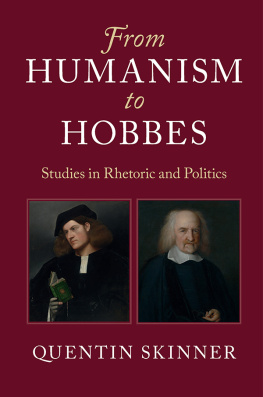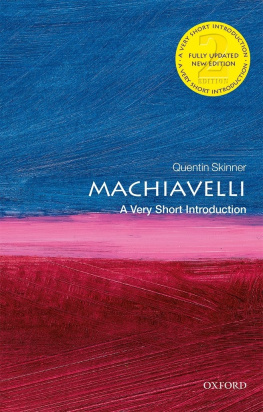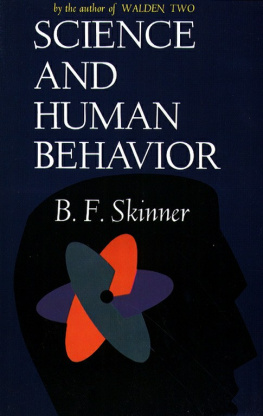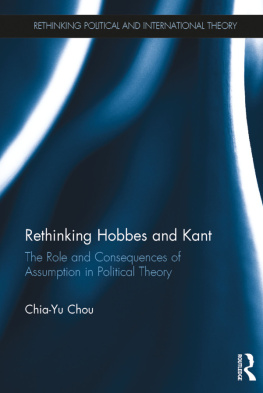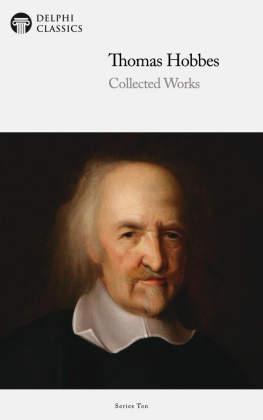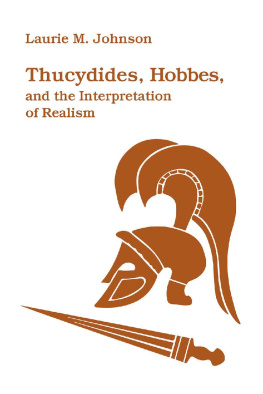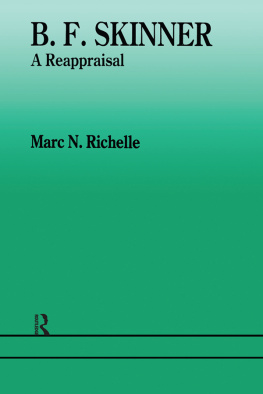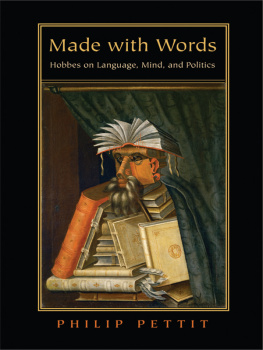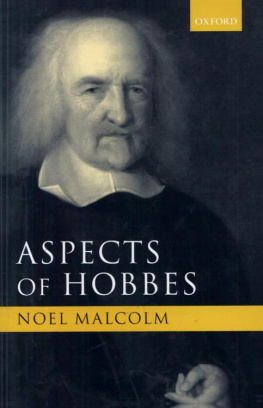Skinner - From humanism to Hobbes: studies in rhetoric and politics
Here you can read online Skinner - From humanism to Hobbes: studies in rhetoric and politics full text of the book (entire story) in english for free. Download pdf and epub, get meaning, cover and reviews about this ebook. City: Cambridge;UK, year: 2018;2017, publisher: Cambridge University Press, genre: Romance novel. Description of the work, (preface) as well as reviews are available. Best literature library LitArk.com created for fans of good reading and offers a wide selection of genres:
Romance novel
Science fiction
Adventure
Detective
Science
History
Home and family
Prose
Art
Politics
Computer
Non-fiction
Religion
Business
Children
Humor
Choose a favorite category and find really read worthwhile books. Enjoy immersion in the world of imagination, feel the emotions of the characters or learn something new for yourself, make an fascinating discovery.
- Book:From humanism to Hobbes: studies in rhetoric and politics
- Author:
- Publisher:Cambridge University Press
- Genre:
- Year:2018;2017
- City:Cambridge;UK
- Rating:3 / 5
- Favourites:Add to favourites
- Your mark:
- 60
- 1
- 2
- 3
- 4
- 5
From humanism to Hobbes: studies in rhetoric and politics: summary, description and annotation
We offer to read an annotation, description, summary or preface (depends on what the author of the book "From humanism to Hobbes: studies in rhetoric and politics" wrote himself). If you haven't found the necessary information about the book — write in the comments, we will try to find it.
From humanism to Hobbes: studies in rhetoric and politics — read online for free the complete book (whole text) full work
Below is the text of the book, divided by pages. System saving the place of the last page read, allows you to conveniently read the book "From humanism to Hobbes: studies in rhetoric and politics" online for free, without having to search again every time where you left off. Put a bookmark, and you can go to the page where you finished reading at any time.
Font size:
Interval:
Bookmark:

From Humanism to Hobbes
Studies in Rhetoric and Politics
The aim of this collection is to illustrate the pervasive influence of humanist rhetoric on early-modern literature and philosophy. The first half of the book focuses on the classical rules of judicial rhetoric. One chapter considers the place of these rules in Shakespeares The Merchant of Venice , while two others concentrate on the technique of rhetorical redescription, pointing to its use in Machiavellis The Prince as well as in several of Shakespeares plays, notably Coriolanus . The second half of the book examines the humanist background to the philosophy of Thomas Hobbes. A major new essay discusses his typically humanist preoccupation with the visual presentation of his political ideas, while other chapters explore the rhetorical sources of his theory of persons and personation, thereby offering new insights into his views about citizenship, political representation, rights and obligations and the concept of the state.
Quentin Skinner is Professor of the Humanities at Queen Mary University of London. He is a Fellow of the British Academy and the Academia Europaea, and a foreign member of the American Academy, the Academia Nazionale dei Lincei and many other learned societies. He has been awarded honorary degrees by numerous major universities, including Chicago, Harvard and Oxford. His scholarship, which is available in more than two dozen languages, has won him many awards, including the Wolfson Prize for History and a Balzan Prize. His two-volume study, The Foundations of Modern Political Thought (1978), was listed by The Times Literary Supplement in 1996 as one of the hundred most influential books since World War II. His other books include Reason and Rhetoric in the Philosophy of Hobbes (1996), Liberty Before Liberalism (1998), Machiavelli (2000), Hobbes and Republican Liberty (2008), Forensic Shakespeare (2014) and a three-volume collection of essays, Visions of Politics (2002).
From Humanism to Hobbes
Studies in Rhetoric and Politics
Quentin Skinner
Queen Mary University of London


University Printing House, Cambridge CB2 8BS, United Kingdom
One Liberty Plaza, 20th Floor, New York, NY 10006, USA
477 Williamstown Road, Port Melbourne, VIC 3207, Australia
314321, 3rd Floor, Plot 3, Splendor Forum, Jasola District Centre, New Delhi 110025, India
79 Anson Road, #0604/06, Singapore 079906
Cambridge University Press is part of the University of Cambridge.
It furthers the Universitys mission by disseminating knowledge in the pursuit of education, learning, and research at the highest international levels of excellence.
www.cambridge.org
Information on this title: www.cambridge.org/9781107128859
DOI: 10.1017/9781316415559
Quentin Skinner 2018
This publication is in copyright. Subject to statutory exception and to the provisions of relevant collective licensing agreements, no reproduction of any part may take place without the written permission of Cambridge University Press.
First published 2018
Printed in the United Kingdom by TJ International Ltd. Padstow Cornwall
A catalogue record for this publication is available from the British Library .
ISBN 978-1-107-12885-9 Hardback
ISBN 978-1-107-56936-2 Paperback
Cambridge University Press has no responsibility for the persistence or accuracy of URLs for external or third-party internet websites referred to in this publication and does not guarantee that any content on such websites is, or will remain, accurate or appropriate.
My first thanks must go to Richard Fisher. It was he who, as Managing Director of the Cambridge University Press, encouraged me to think of putting together the essays I have produced since the appearance of my previous collection, Visions of Politics , in 2002. Two volumes were originally envisaged, but on rereading my work I came to see that none of it warranted republication in its original form, and that much of it did not warrant republication at all. I eventually decided, with the help of the Presss referees, to concentrate on reshaping one group of interconnected studies, and the present volume is the result. Some new chapters have been added, while my earlier essays have been revised to remove overlaps and repetitions, to make clear the links between them, and to bring them up to date with the latest scholarship. They have also been enlarged, in some instances extensively, and in these cases I have retitled them. They were all read in their original form by a number of experts, whose assistance is gratefully acknowledged in notes at the beginning of each chapter. The same notes extend my thanks to the editors and publishers who have allowed me to reuse this earlier work. I need to add a special word of appreciation to Rachel Platt, who negotiated permission for me to include three pieces originally published by Oxford University Press.
I owe an immense debt to Queen Mary University of London, where I have been teaching since 2008. My colleagues in the School of History remain warmly welcoming, and I feel especially grateful to Miri Rubin, Colin Jones and Julian Jackson for doing so much, as successive Chairs of the School, to make it a civilised and distinguished place in which to work. To the Schools Director of Administration, Emma Yates, I am obliged for many kindnesses, and I particularly want to thank her for securing a grant from the University to pay for the illustrations in this book. I have learned a great deal from my colleagues in intellectual history, especially Warren Boutcher, David Colclough, Mira Siegelberg, Gareth Stedman Jones, Georgios Varouxakis and above all Richard Bourke. I also want to acknowledge how much I owe to the outstanding group of PhD students I have supervised at Queen Mary on topics closely related to the themes of this book: Alexandra Chadwick, Signy Gutnick-Allen, Elliott Karstadt, Vanessa Lim, Joanne Paul, Lorenzo Sabbadini and Clare Whitehead.
Many friends have discussed my research with me throughout the years when I have been writing the essays in this book. I name them with the deepest gratitude: David Armitage, Annabel Brett, Hannah Dawson, John Dunn, Marco Geuna, Raymond Geuss, Paul Ginsborg, Angus Gowland, Kinch Hoekstra, Fred Inglis, Melissa Lane, Jonathan Lear, Noel Malcolm, Eric Nelson, Markku Peltonen, Philip Pettit, John Pocock, Pete Stacey, Tim Stanton, Keith Thomas, John Thompson, Richard Tuck and last but by no means least James Tully. I am also most grateful for the advice of the Cambridge University Presss two highly perceptive referees. To Noel Malcolm I owe special thanks as does every student of Hobbes for the pleasure of being able to work with his definitive edition of Hobbess Leviathan , one of the great editorial achievements of our time.
My research has mainly been conducted in the British Library and the Library of the Warburg Institute, University of London, and I am extremely grateful for the courtesy and efficiency of their staff. For creating the images I have used as illustrations, and for granting me permission to reproduce them, my thanks are due to the British Library, the Cambridge University Library, the Cambridge University Press, the Houghton Library of Harvard University and the Huntington Library. I am much indebted to all these institutions for their helpfulness as well as their technical expertise.
Font size:
Interval:
Bookmark:
Similar books «From humanism to Hobbes: studies in rhetoric and politics»
Look at similar books to From humanism to Hobbes: studies in rhetoric and politics. We have selected literature similar in name and meaning in the hope of providing readers with more options to find new, interesting, not yet read works.
Discussion, reviews of the book From humanism to Hobbes: studies in rhetoric and politics and just readers' own opinions. Leave your comments, write what you think about the work, its meaning or the main characters. Specify what exactly you liked and what you didn't like, and why you think so.

